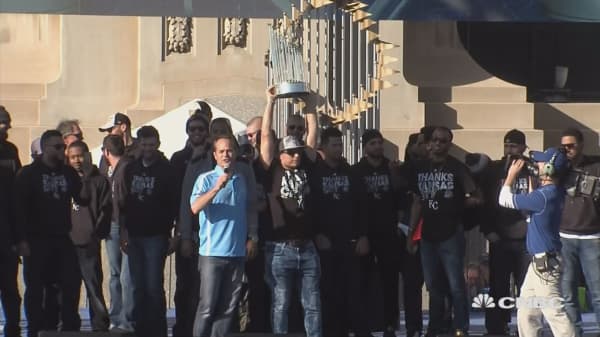As fans anxiously await the start of the Major League Baseball season on Sunday, they may find this year that getting into the stadium will have some new twists. Baseball ticketing is undergoing major changes this season.
An increasing number of teams are considering changes to how they accept tickets. In February, the New York Yankees announced the team will no longer accept print-at-home tickets, instead requiring fans to use a traditional paper ticket or an e-ticket on their phone.
The Yankees say the change is to fight against the increase in counterfeit tickets, but it also makes it increasingly challenging to buy from secondary markets like StubHub and TiqIQ where fans traditionally use the print-at-home option. As a result, fans will land at the Yankees Ticket Exchange, a site run for the Yankees directly by Ticketmaster.
"It's interesting, because it really forces fans to interact more with the Yankees ecosystem," said Jesse Lawrence, CEO of TiqIQ. "We don't make nearly as much money when we sell a primary ticket as we do a secondary ticket."








